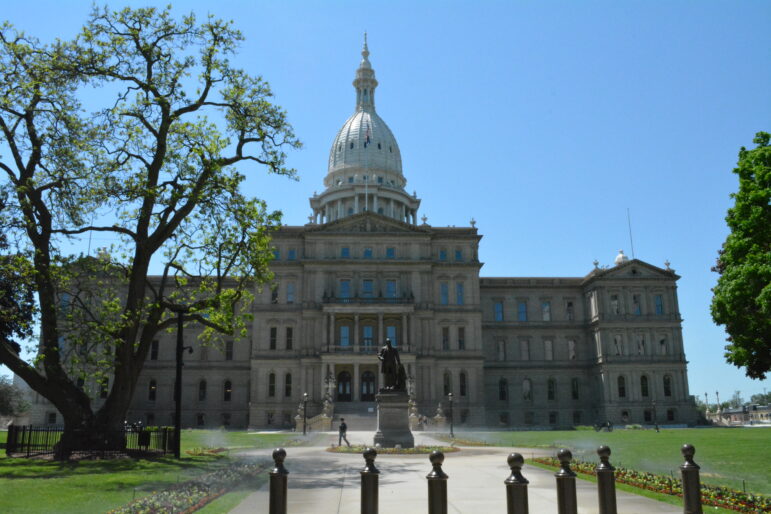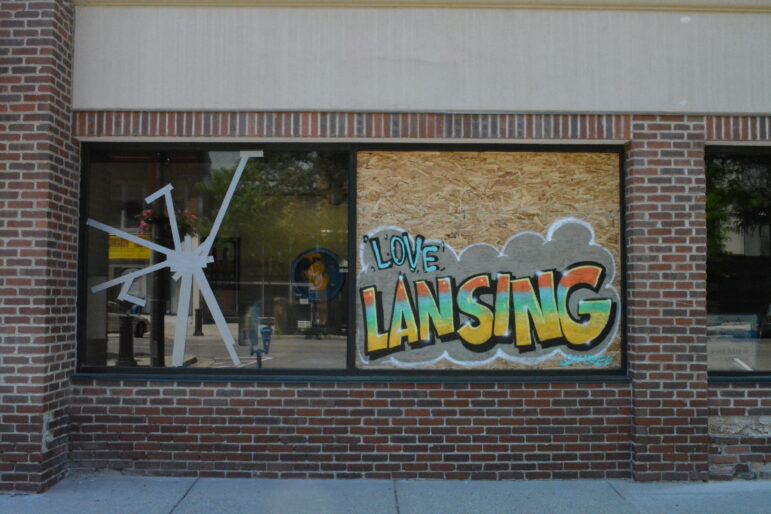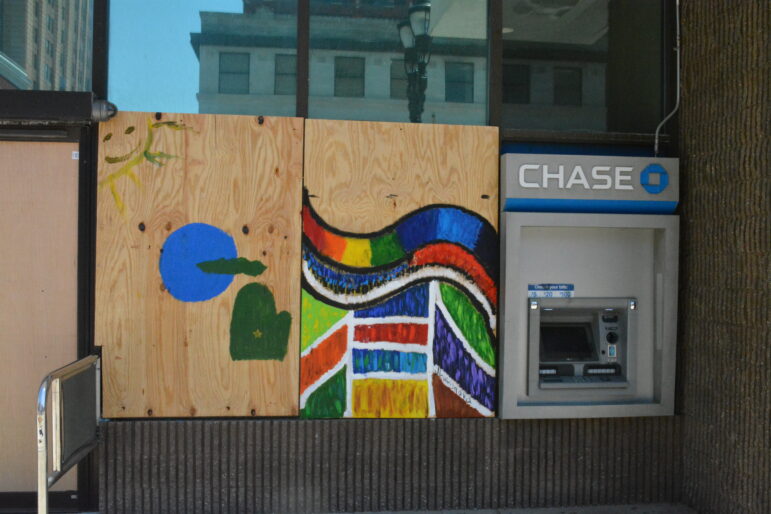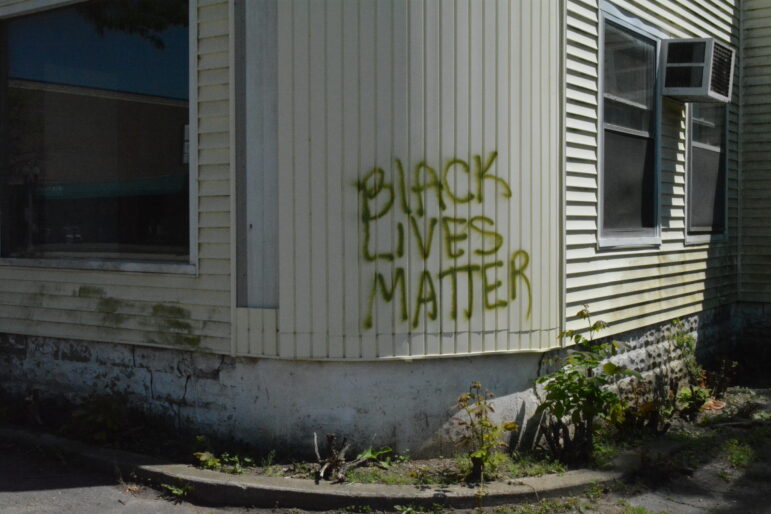
Chase Goff
Capital Building in downtown LansingGeorge Floyd’s murder was a familiar sight to the black community in this country. Police, and other law enforcement workers have taken the lives of many others in America, but this murder was able to be caught on camera for the nation to view, and show the struggle that people have talked about.
“There have been many George Floyds before this, men and women that have lost their lives or experienced death at the hand of law enforcement across the country,” said Dulles Dale Copedge, President of the NAACP Lansing Branch. “This one here was able to get some footage, and as the pieces of footage started to unfold, they started seeing what people were saying.”

Chase Goff
“Love Lansing” spray painted on a boarded window that was broken during protest in LansingOn May 25th, George Floyd was murdered by police officer Derek Chauvin; while arresting Floyd, Officer Chauvin kneeled on his neck for over eight minutes, and was later charged with second-degree murder and second-degree manslaughter for the incident. The murder of George Floyd has lead to protests all around the world, including protests right here in Lansing, and East Lansing, with the hope to bring attention to the police brutality issue in America.
The protest that took place in Lansing was just one of the many that took place across the country, and protest attendee, Sean Gibbons said that it was the largest mobilization of people that he has ever seen, and that in the future, these protests will be in the history books.
“This is just one of many protests, and 20 years from now they’ll be in the history books,” said Gibbons. “They are the largest mass mobilization of people I’ve seen, in recent history, and definitely in our generation for sure, and then in addition to that, it’s every state, it’s every city, people are coming out.”

Chase Goff
Boarded up window of Chase Bank in Lansing, after protester broke the windowAccording to the Michigan State student, these protests are going to change a lot of things in politics such as criminal justice reform and how people look at police budgeting. In the near future, the protests are going to have a real effect on police brutality.
“Down the road, these protests are going to be seen as trailblazing, and in terms of the way we look at police reform and the ways we look at criminal justice, I think it’s going to be really beneficial for the future and it’s going to change politics,” said Gibbons. “People are going to start campaigning and reforming the police rather than beefing up the police budget; people are going to start campaigning on criminal on justice reform, different district attorney’s will be reducing sentences as opposed to increasing them.”
Gibbons isn’t the only MSU student who thinks that these protests are going to lead to real change. Cleo Silvis said that this is one of the largest civil rights movements ever, and if the momentum stays high, that this will definitely be a cornerstone for change.
“This is one of the biggest, if not the biggest civil rights protests ever because so many different countries have gotten involved,” said Silvis, “and I really hope we can keep this momentum going, and if we can, then I definitely think this will be a cornerstone for change.”

Chase Goff
“Black Lives Matter” spay painted on a building in LansingAccording to Gibbons, in order to keep that momentum up, we need to continue protesting, and continue to mobilize young people in a more organized way in order to send a more uniformed message.
“Continuing these protests, continuing mobilizing young people, and capitalizing on it, said Gibbons, “and as we’re mobilizing people, get in that organizational element. This protest was very badly organized, it wasn’t organized on a uniformed movement, the organizers were divided, and that’s what caused it to be splintered and not have a unified message.”